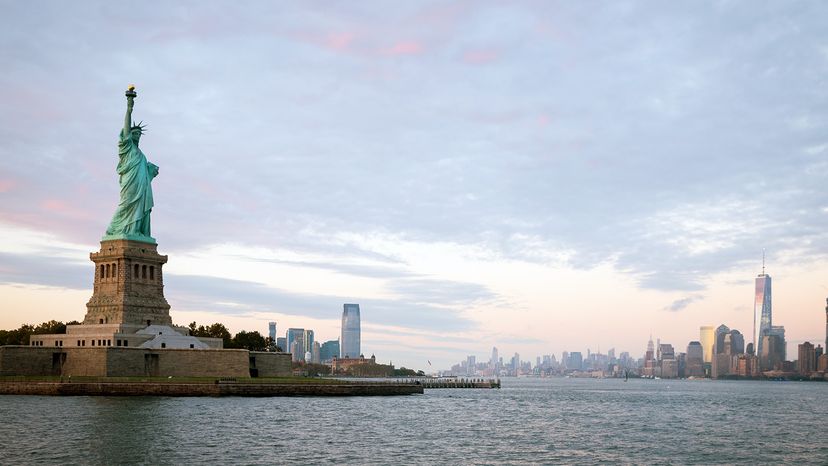One of the most iconic symbols of the United States, the Statue of Liberty, may be at the center of an international dispute following a call from a French politician to have it returned to France. More than 140 years after it was gifted to the United States, the monument is now being used as a political statement regarding the current state of international relations.

The Statue of Liberty, which has stood proudly on Liberty Island in New York Harbor since 1886, was originally a gift from the people of France. It was designed by sculptor Frédéric Auguste Bartholdi and built with the assistance of engineer Gustave Eiffel. The monument was meant to symbolize the shared values of liberty and democracy between the two nations. France, with its motto of “Liberté, Égalité, Fraternité,” saw the statue as a representation of its deep historical ties with the United States, which had positioned itself as the “Land of the Free.”
However, recent political events have led to renewed tensions between the two countries. French Member of the European Parliament (MEP) Raphaël Glucksmann has publicly demanded the return of the Statue of Liberty, citing concerns over the direction of American politics. Speaking at a Place Publique party conference, Glucksmann argued that the United States no longer upholds the values that the statue represents.
“We’re going to say to the Americans who have chosen to side with tyrants, to the Americans who fired researchers for demanding scientific freedom: ‘Give us back the Statue of Liberty,'” Glucksmann declared. He went on to state that “we gave it to you as a gift, but apparently you despise it. So it will be just fine here at home.”

Although his remarks were likely intended as a symbolic critique rather than an actual demand for repatriation, they highlight growing frustrations in France regarding American policies. The reference to “siding with tyrants” may be interpreted as a criticism of recent U.S. foreign policy decisions. Additionally, Glucksmann’s statement regarding “firing researchers” appears to allude to concerns about scientific freedom and political interference in academic and environmental research.
While there is no legal mechanism that would force the United States to return the statue, the remarks have sparked a broader conversation about transatlantic relations and the state of democratic values in both nations. Some have dismissed Glucksmann’s comments as political grandstanding, while others view them as a legitimate expression of concern about the global influence of American policies.
The Statue of Liberty has long been a beacon of hope for immigrants arriving in the United States, symbolizing freedom and opportunity. Its presence has been deeply ingrained in American culture, appearing in literature, films, and countless depictions of the nation’s ideals. A call for its return, even if symbolic, raises questions about whether the United States continues to embody the principles that inspired its creation.
As political debates continue on both sides of the Atlantic, it is unlikely that the statue will be returned to France. However, the controversy serves as a reminder of how historical symbols can take on new meanings in changing political climates. Whether Glucksmann’s call gains further traction or fades as a rhetorical gesture, the discussion it has ignited reflects ongoing concerns about the future of democracy and international relations in an increasingly complex world.




